Mississippi Today
Texts: Lawmakers maneuver Mississippi’s Medicaid rolls

Texts: Lawmakers maneuver Mississippi’s Medicaid rolls
Wading through the complexities of Medicaid eligibility in order to secure health insurance for yourself or your family member in Mississippi can be a nightmare. It might even feel impossible.
But if you happen to go to church with a state legislator, you may be in luck.
“Please have someone check on the Medicaid app on (patient),” Rep. Jody Steverson, R-Ripley, wrote to Mississippi Division of Medicaid Director Drew Snyder last summer. “(Patient) has cerebral palsy and I attend church with his grandparents.”
Snyder forwarded the message to Tracy Buchanan, Medicaid’s director of long term services and supports. “Will do,” she responded.

In roughly the last year, Snyder asked Buchanan to follow up on requests from at least eight lawmakers, all white Republican men, according to text messages obtained by Mississippi Today.*
“Being a lawmaker, you can go to the head of the department and start there,” said Rep. Price Wallace, R-Mendenhall, who called and texted Snyder about a Medicaid application in January. “When you can call the top brass and let them know, then the problem seems to get worked out a lot quicker than starting at the bottom and trying to go up the ladder.”
In the texts, the politicians ask for special attention, sometimes explaining the heartbreaking circumstances and the roadblocks that specific beneficiaries faced in attempting to access Medicaid – the public health insurance program reserved for the poorest and most medically fragile citizens.
Medicaid is one of the largest arms of the nation’s social safety net, a maze of taxpayer-funded assistance that ideally exists to level the playing field for needy Americans, if not just simply help them survive.
Mississippi lawmakers – as well as Gov. Tate Reeves, who reappointed Snyder from the previous Gov. Phil Bryant administration – have resisted expanding Medicaid to cover the poor and uninsured. They’ve opted instead for punitive policies that target beneficiaries for suspected fraud, such as the HOPE Act, which they refused to repeal even after recent pleas from the Reeves-appointed welfare director.
Yet they can tap into the programs for those they personally deem worthy.
“Thank you for again helping me,” House Appropriations Chairman Rep. John Read, R-Gautier, texted Snyder in early 2022. “The family at this time can not express how great they feel.”
Looking at it one way, the requests demonstrate the lawmaker’s accessibility, their resourcefulness, tangible constituent representation.
But the texts also reflect the potential influence lawmakers have over the agency, not just in relation to its state budget, but in determining who successfully ends up on the Medicaid rolls in the poorest state in the nation.
“Legislators often reach out to the Division with questions or concerns raised by their constituents, and we take those questions and concerns seriously,” Medicaid said in a written response to Mississippi Today. “However, we strongly disagree with your assertion that these communications demonstrate a pattern of legislative influence on who gets served and how quickly.”
While some of Snyder’s inquiries to Buchanan over the last year came from other connected people, the majority originated from lawmakers. Snyder, who came to Medicaid after working as a deputy chief of staff and policy advisor in Bryant’s office, has an incentive to make lawmakers happy, since they determine his state budget.
“I think it does help, you know, when a lawmaker makes the phone call. It puts a little bit hotter fire under their bottom,” Wallace said. “… When I talked back with Drew, he was like, ‘Yeah, we got everything handled.’ So it was taken care of.”
“That’s what we’re here for,” Wallace said. “In all honesty, that’s why I ran for this job, to help my constituents. That’s where I get the most satisfaction of being a representative for the state of Mississippi District 77 is when one of my constituents calls me with a problem and I’m able to help them resolve that problem.”
Mississippi Today recently published a story about the struggles that a couple in north Mississippi have had navigating a special Medicaid program, called the Medicaid IDD waiver, for their 23-year-old son, who has severe autism.
The couple, Natalie and Jamie Gunnells, sought help from their local lawmaker Sen. Chad McMahan, R-Guntown, which they had supported in his past campaigns. McMahan set up a meeting for the Gunnells with officials from Medicaid, which eventually acquiesced, adopting a temporary policy that allowed Natalie Gunnells to get paid for care for her son.

“I know how to work the system for the people I represent,” McMahan told Mississippi Today. “… I have figured out a way to be very successful in helping my constituents get the medical services or the disability services their family needs. And I’m not gonna reveal how I’ve learned it. I’ve learned the system.”
When McMahan found out the Gunnells had expressed support for his upcoming political opponent, a conservative opposed to Medicaid enhancements, the senator called them out, saying it was a “slap in the face” considering all the hours he spent lobbying on their behalf.
Asked if he thinks about helping people access public assistance as a way to secure votes, McMahan said, “That never crosses my mind. There’s never a wrong time to do the right thing.”
(Medicaid later chose not to permanently adopt the policy).
Rep. John Hines, D-Greenwood, said when he’s reached out to Medicaid about concerns, current agency leadership has always been responsive to him, explaining why one of his constituents may or may not be eligible for the assistance. They say they want to help, Hines said, but that they have to stay within strict eligibility guidelines.
To Hines, this scenario illuminates a larger point: There wouldn’t be such a need for lawmaker intervention on specific beneficiary cases if those lawmakers put in place equitable policies for all.
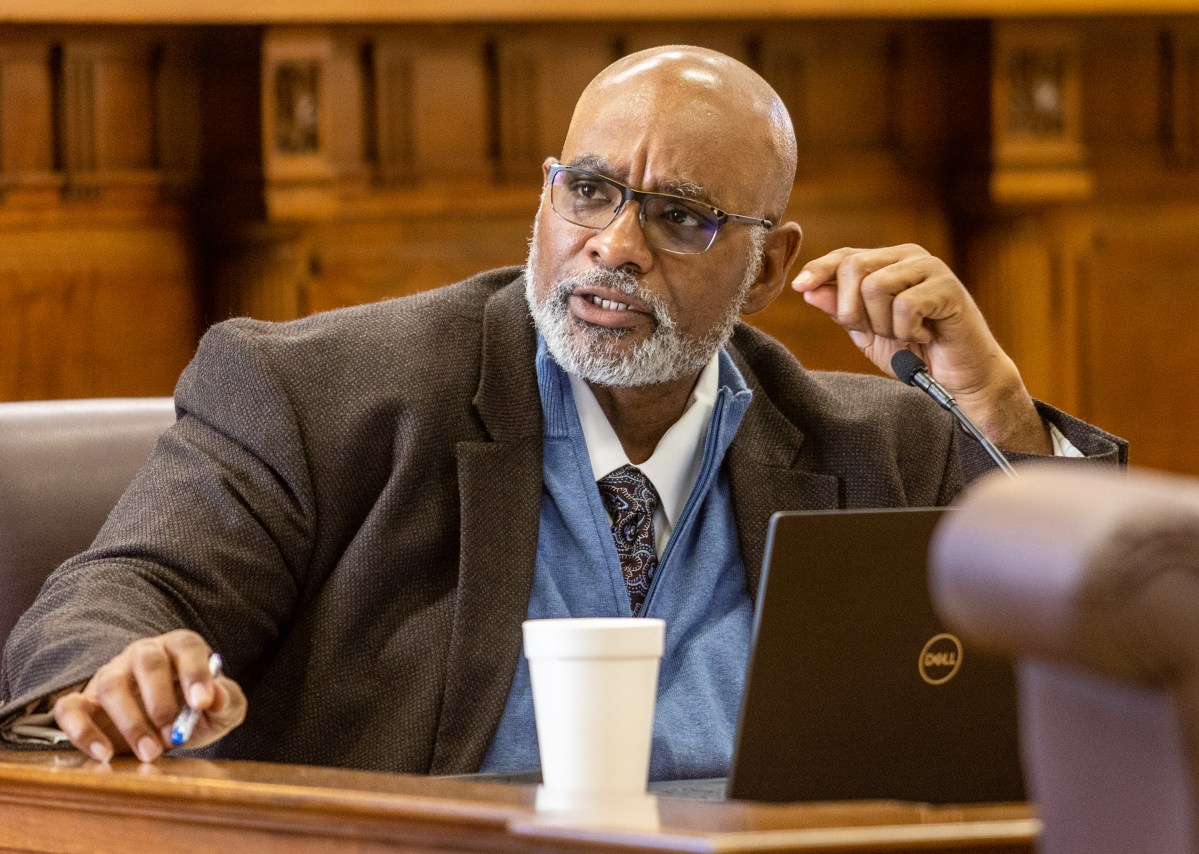
“I think the issue in the whole Medicaid system is the fact that we did not expand,” Hines said. “And a lot of these conversations, a lot of these situations that are happening here in this state, if we would just expand it, we would not be having. There wouldn’t even be a need for you to do the story that you’re doing.”
Hines continued: “The government’s inability to want to expand Medicaid forces representatives and directors of agencies to have to make uncomfortable decisions and conversations around the safety and the health of constituents, which would automatically be eligible for Medicaid if we would expand it, and they wouldn’t have to be making all these special phone calls.”
Below are the texts between Snyder and Buchanan referencing lawmaker interactions with Steverson, Read, Wallace, Rep. Tracy Arnold, R-Boonville, Rep. Rob Roberson, R-Starkville, Rep. Joey Hood, R-Ackerman, Rep. Bubba Carpenter, R-Burnsville, Rep. Sam Creekmore, R-New Albany, and former House Ways and Means Chair Jeff Smith, R-Columbus. Most of them either declined to comment or did not return texts or calls to Mississippi Today.
*The text messages referenced in this story were sent between Snyder and Buchanan from Dec. 1, 2021, to February 16, 2023. They do not reflect the entirety of communication between state lawmakers and Snyder, just the correspondence he forwarded to Buchanan that was then shared with Mississippi Today to fulfill its records request.
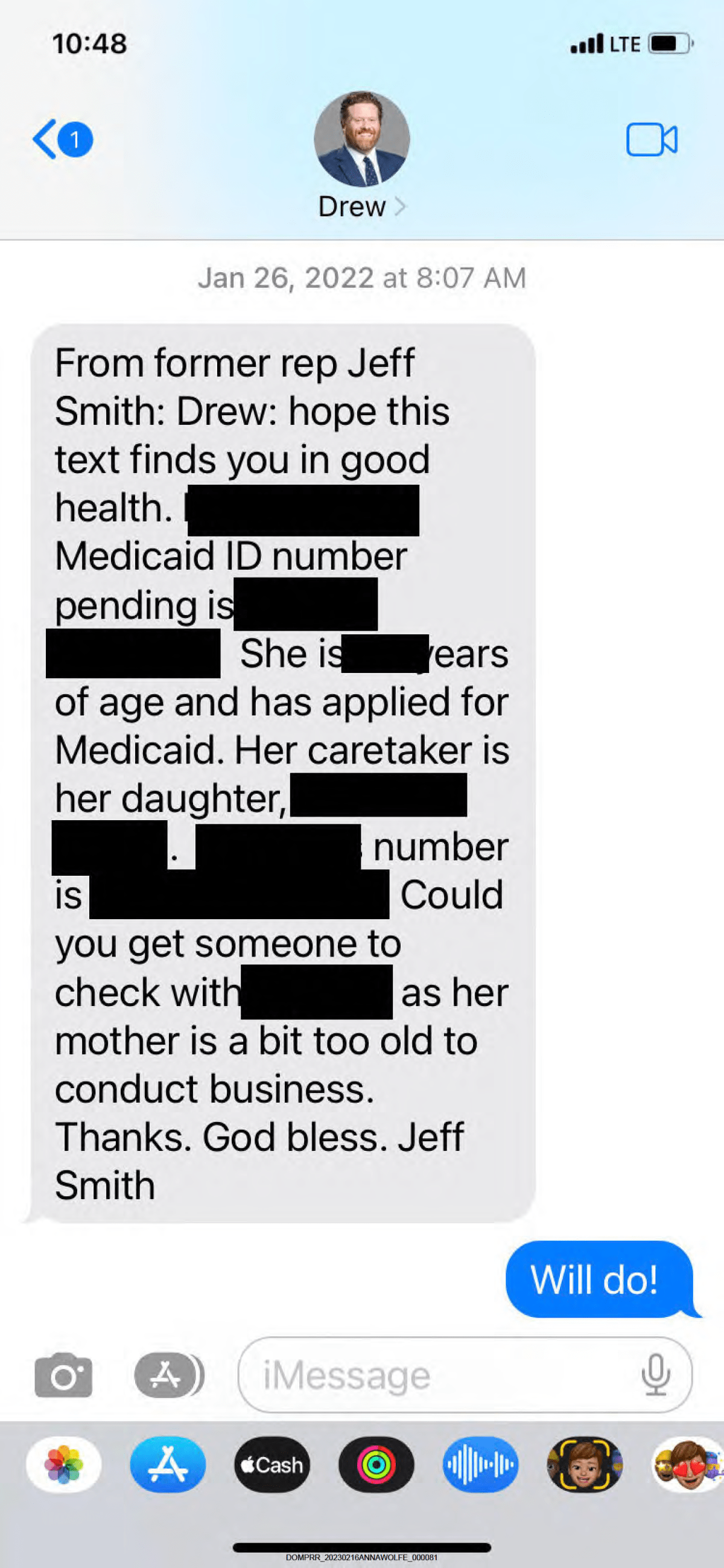
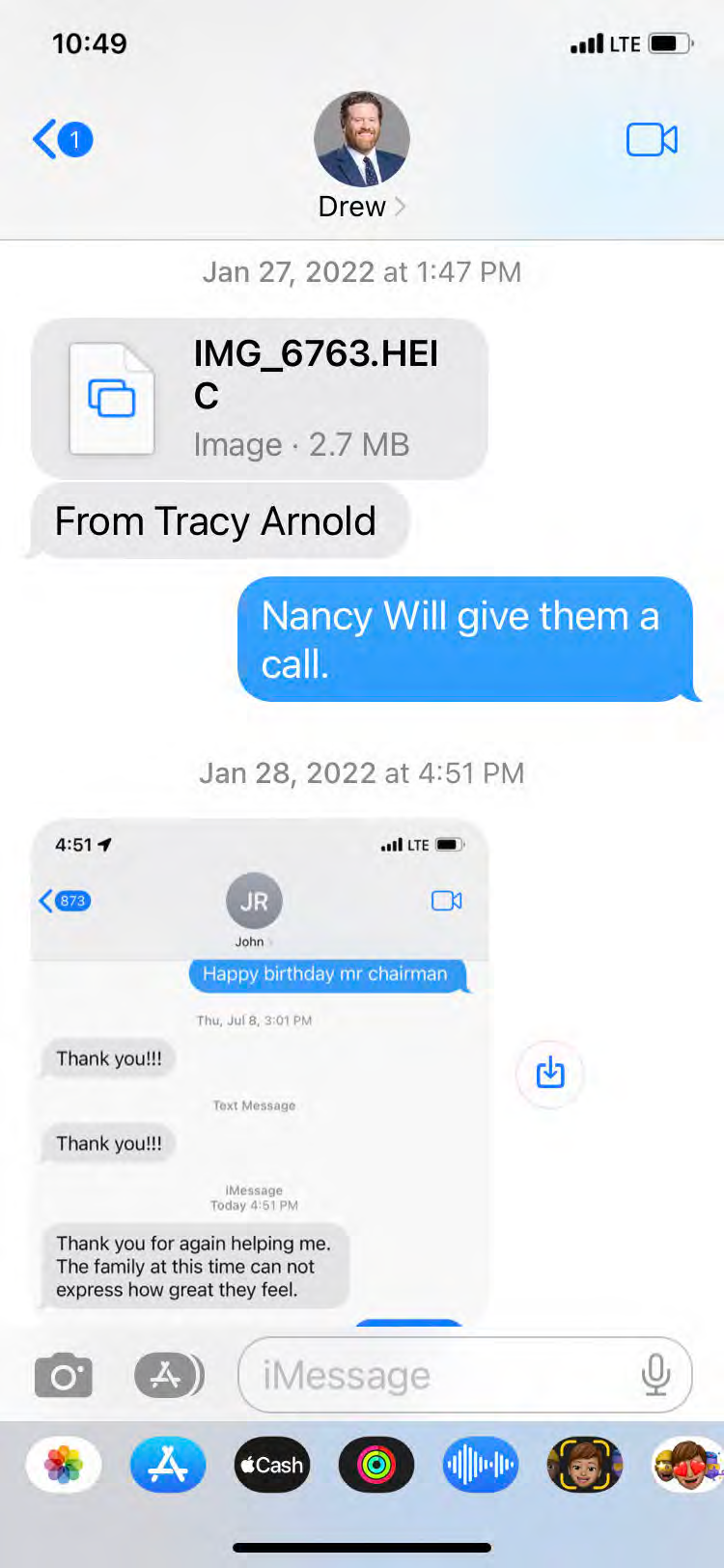
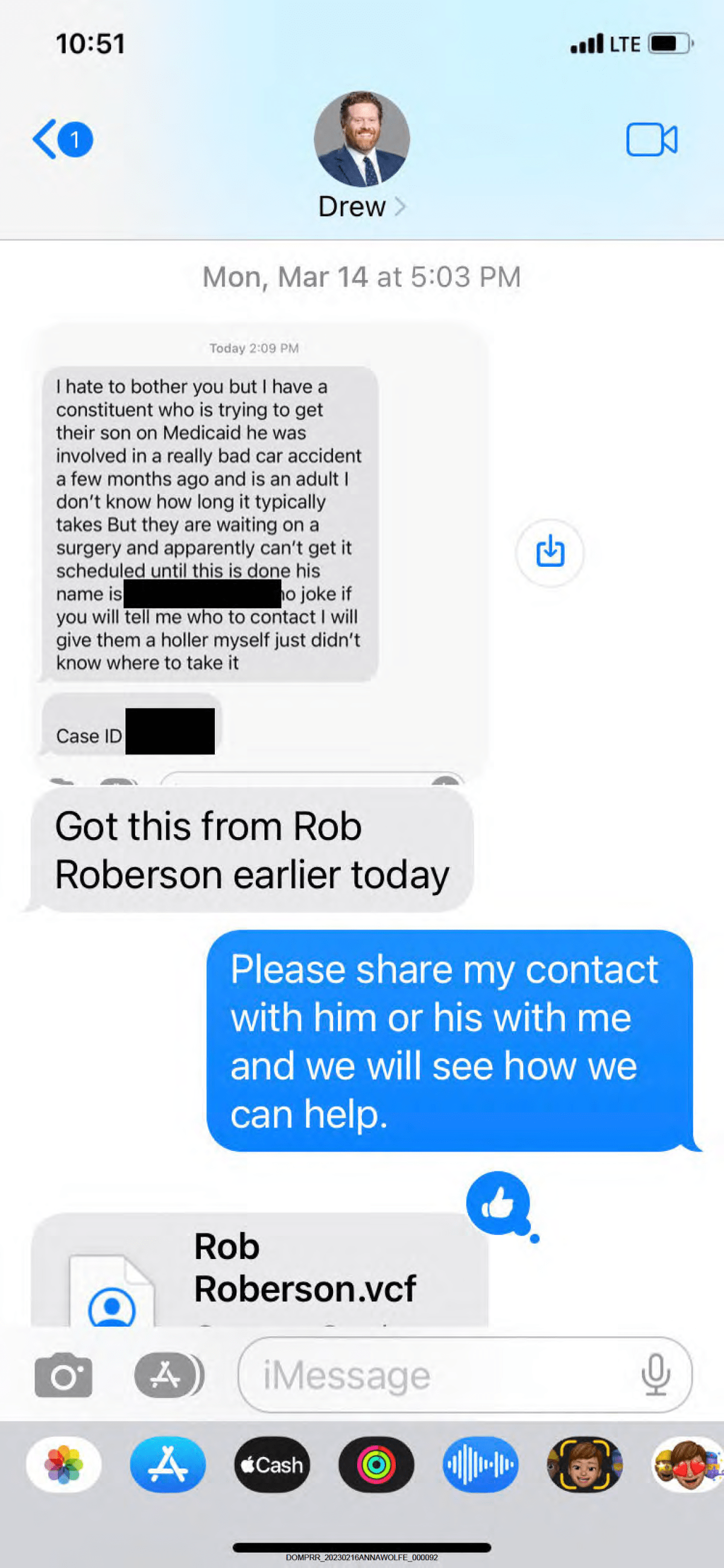
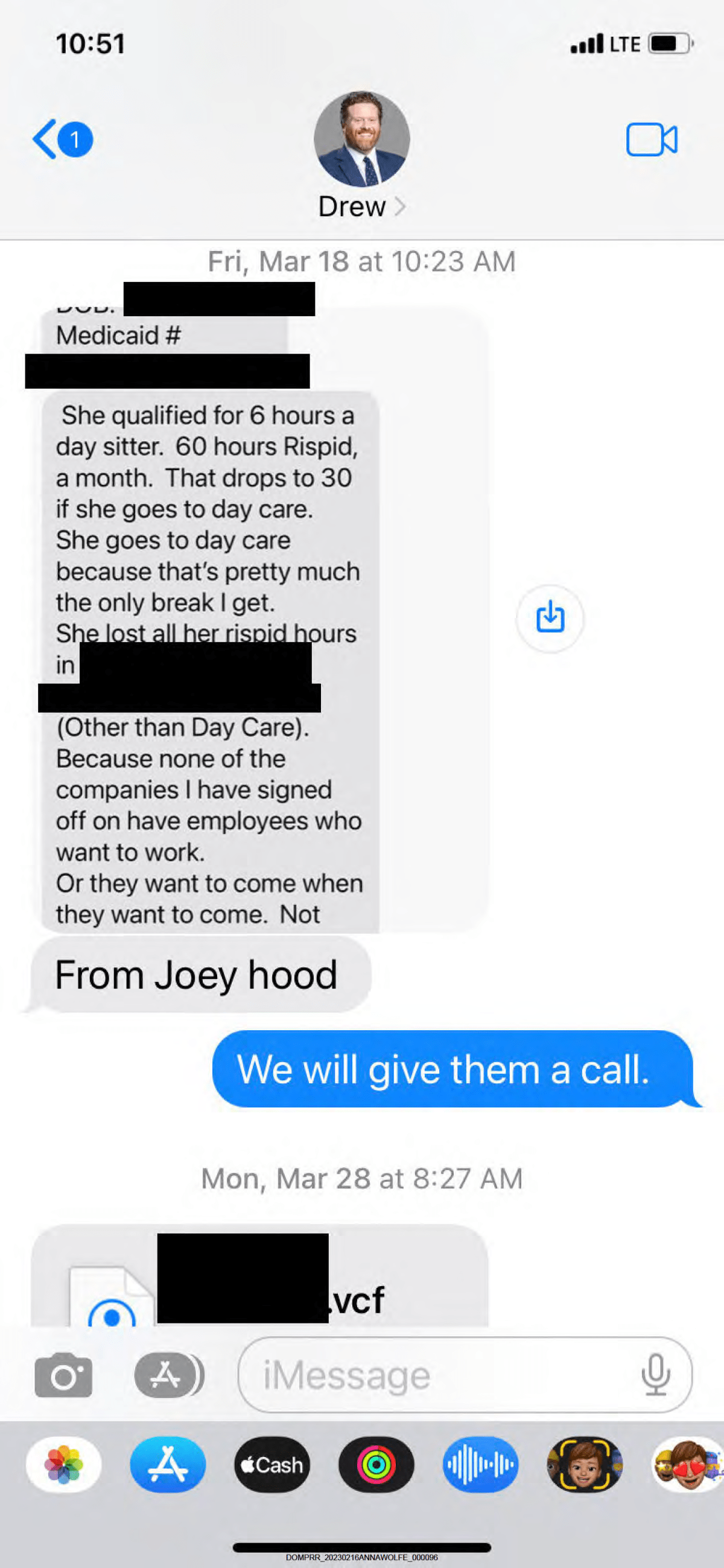

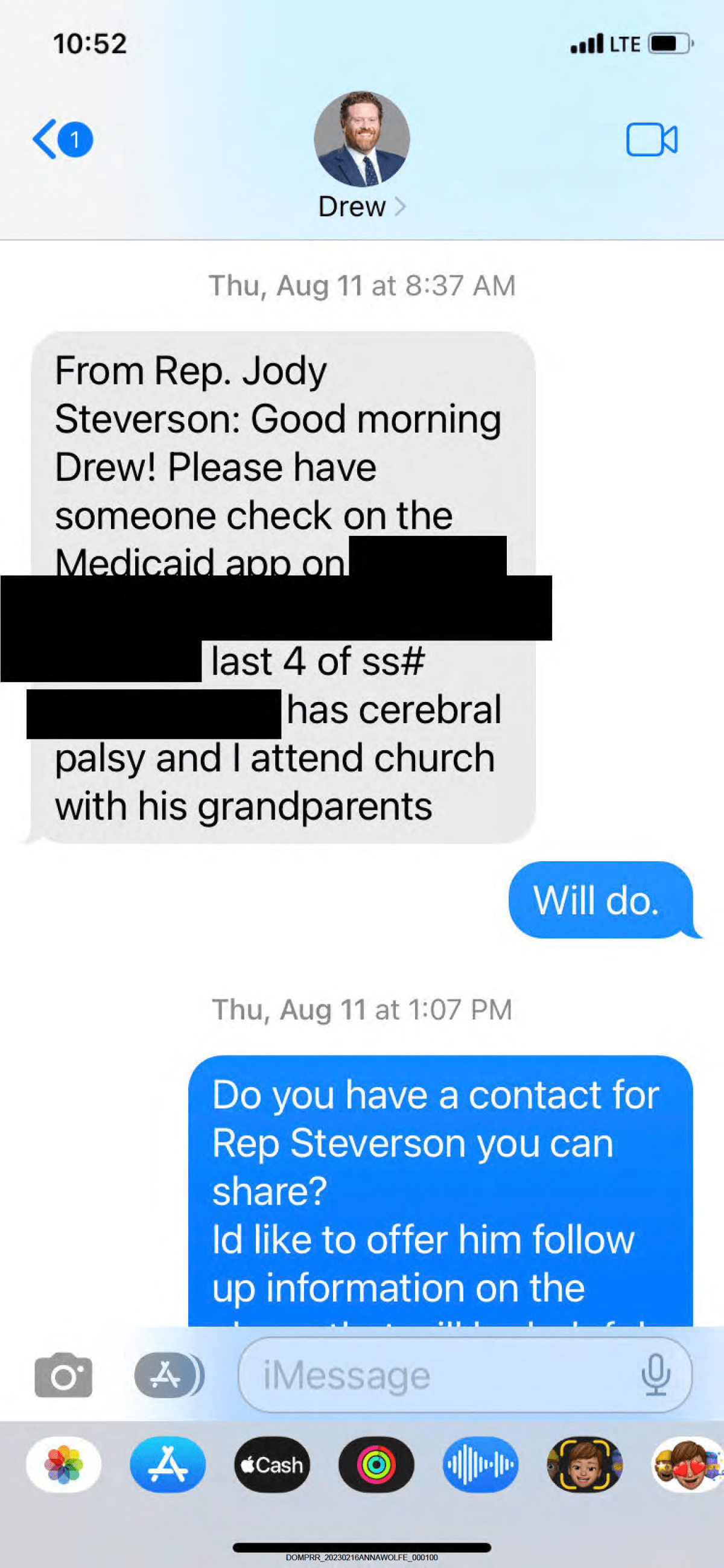
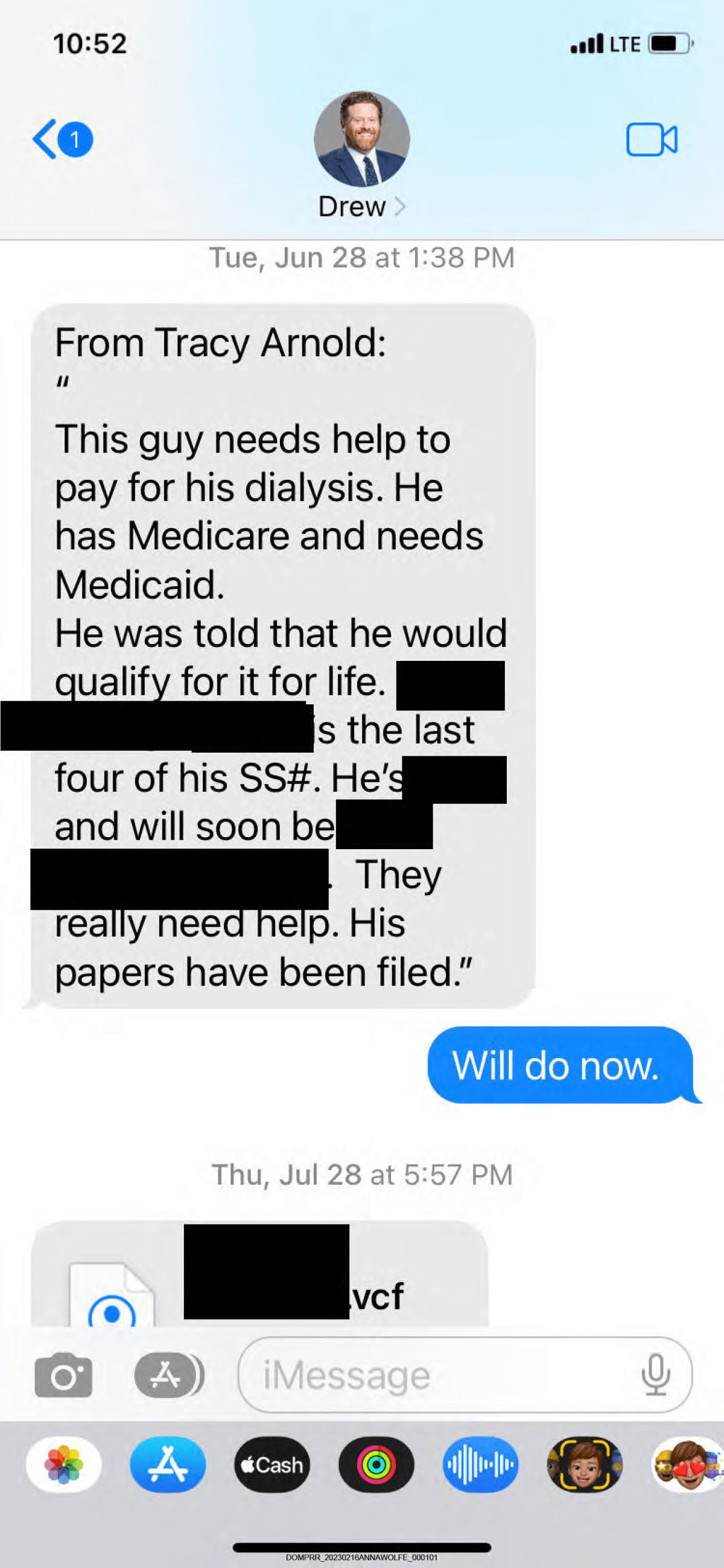
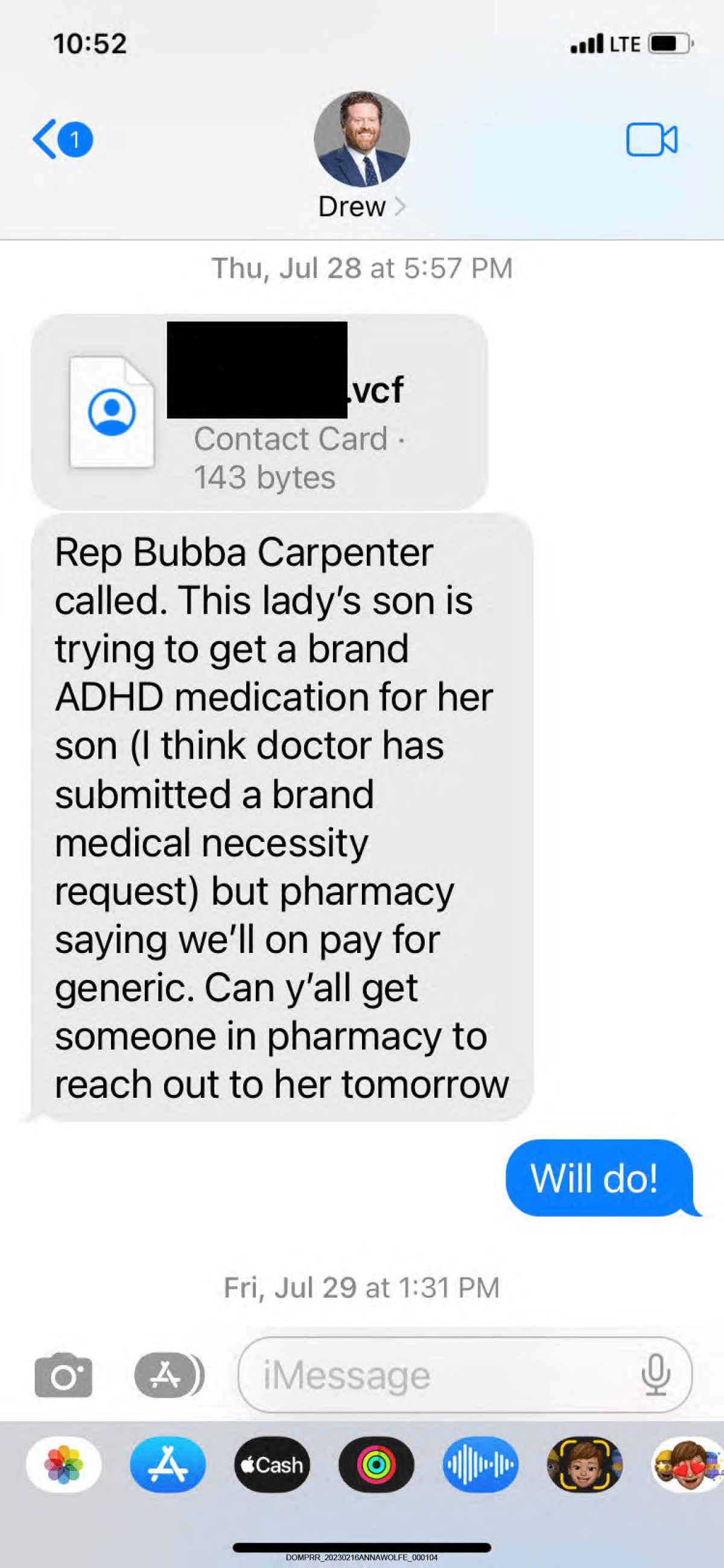
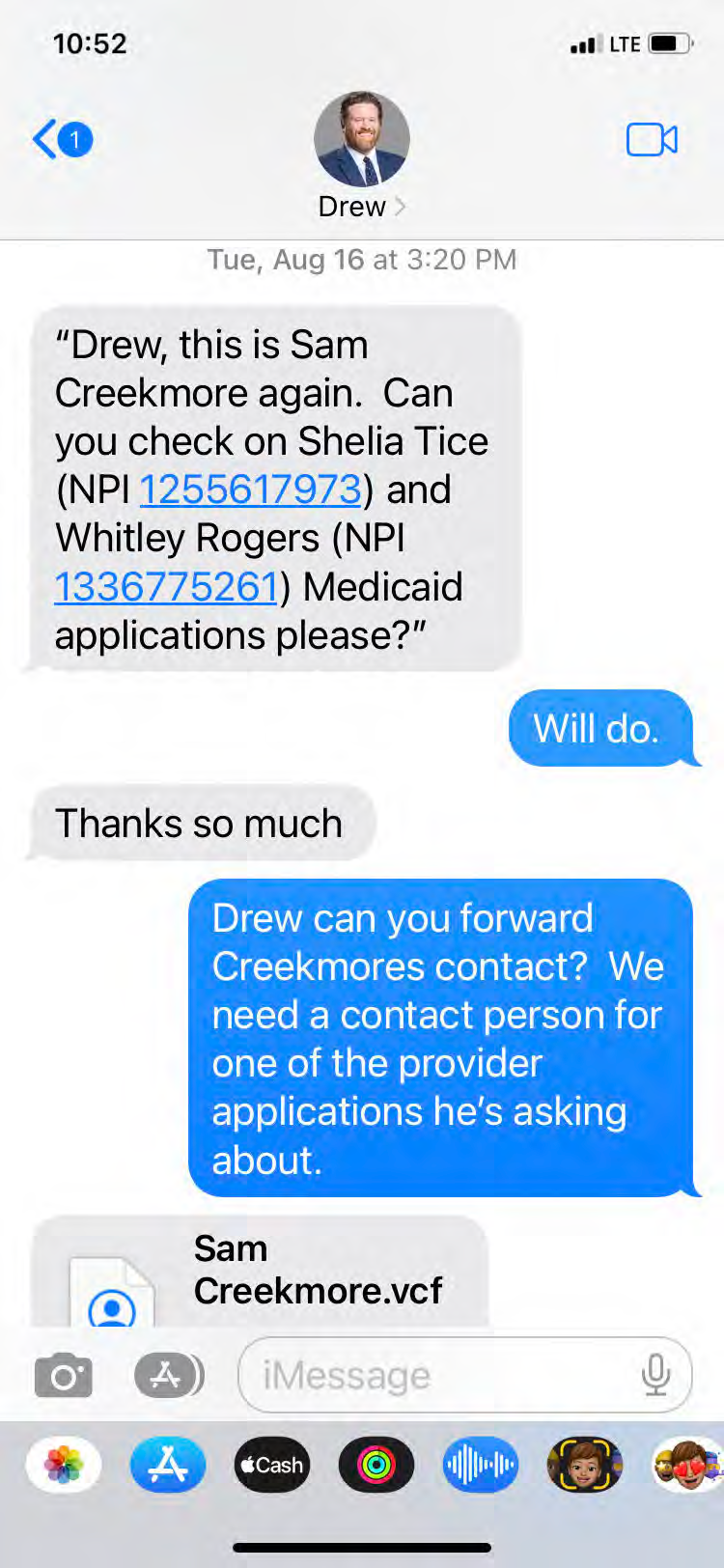
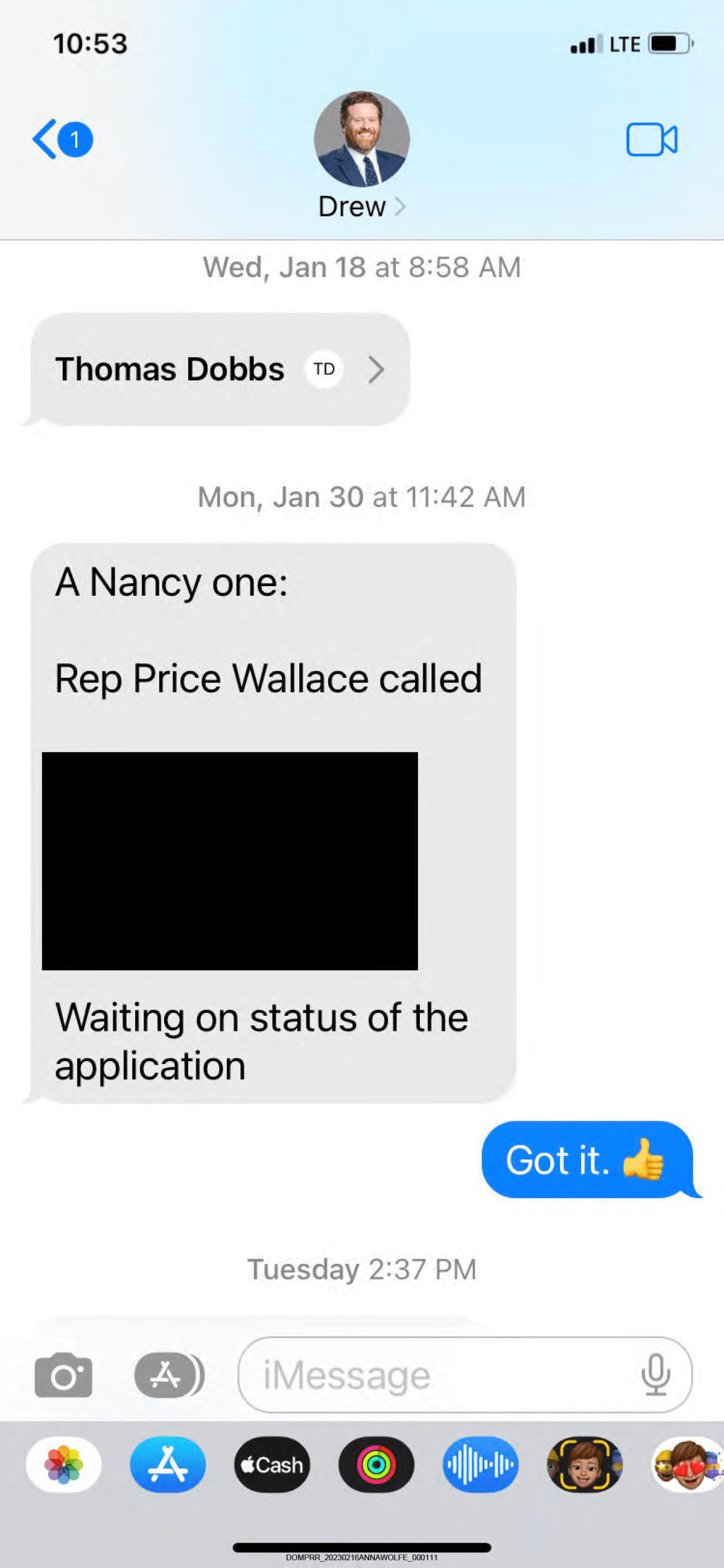
This article first appeared on Mississippi Today and is republished here under a Creative Commons license.
Mississippi Today
Derrick Simmons: Monday’s Confederate Memorial Day recognition is awful for Mississippians
Editor’s note: This essay is part of Mississippi Today Ideas, a platform for thoughtful Mississippians to share fact-based ideas about our state’s past, present and future. You can read more about the section here.
Each year, in a handful of states, public offices close, flags are lowered and official ceremonies commemorate “Confederate Memorial Day.”
Mississippi is among those handful of states that on Monday will celebrate the holiday intended to honor the soldiers who fought for the Confederacy during the Civil War.
But let me be clear: celebrating Confederate Memorial Day is not only racist but is bad policy, bad governance and a deep stain on the values we claim to uphold today.
First, there is no separating the Confederacy from the defense of slavery and white supremacy. The Confederacy was not about “states’ rights” in the abstract; it was about the right to own human beings. Confederate leaders themselves made that clear.
Confederate Vice President Alexander Stephens declared in his infamous “Cornerstone Speech” that the Confederacy was founded upon “the great truth that the negro is not equal to the white man.” No amount of revisionist history can erase the fact that the Confederacy’s cause was fundamentally rooted in preserving racial subjugation.
To honor that cause with a state holiday is to glorify a rebellion against the United States fought to defend the indefensible. It is an insult to every citizen who believes in equality and freedom, and it is a cruel slap in the face to Black Americans, whose ancestors endured the horrors of slavery and generations of systemic discrimination that followed.
Beyond its moral bankruptcy, Confederate Memorial Day is simply bad public policy. Holidays are public statements of our values. They are moments when a state, through official sanction, tells its citizens: “This is what we believe is worthy of honor.” Keeping Confederate Memorial Day on the calendar sends a message that a government once committed to denying basic human rights should be celebrated.
That message is not just outdated — it is dangerous. It nurtures the roots of racism, fuels division and legitimizes extremist ideologies that threaten our democracy today.
Moreover, there are real economic and administrative costs to shutting down government offices for this purpose. In a time when states face budget constraints, workforce shortages and urgent civic challenges, it is absurd to prioritize paid time off to commemorate a failed and racist insurrection. Our taxpayer dollars should be used to advance justice, education, infrastructure and economic development — not to prop up a lost cause of hate.
If we truly believe in moving forward together as one people, we must stop clinging to symbols that represent treason, brutality and white supremacy. There is a legislative record that supports this move in a veto-proof majority changing the state Confederate flag in 2020. Taking Confederate Memorial Day off our official state holiday calendar is another necessary step toward a more inclusive and just society.
Mississippi had the largest population of enslaved individuals in 1865 and today has the highest percentage of Black residents in the United States. We should not honor the Confederacy or Confederate Memorial Day. We should replace it.
Replacing a racist holiday with one that celebrates emancipation underscores the state’s rich African American history and promotes a more inclusive understanding of its past. It would also align the state’s observances with national efforts to commemorate the end of slavery and the ongoing pursuit of equality.
I will continue my legislative efforts to replace Confederate Memorial Day as a state holiday with Juneteenth, which commemorates the freedom for America’s enslaved people.
It’s time to end Confederate Memorial Day once and for all.
Derrick T. Simmons, D-Greensville, serves as the minority leader in the state Senate. He represents Bolivar, Coahoma and Washington counties in the Mississippi Senate.
This article first appeared on Mississippi Today and is republished here under a Creative Commons Attribution-NoDerivatives 4.0 International License.
The post Derrick Simmons: Monday's Confederate Memorial Day recognition is awful for Mississippians appeared first on mississippitoday.org
Note: The following A.I. based commentary is not part of the original article, reproduced above, but is offered in the hopes that it will promote greater media literacy and critical thinking, by making any potential bias more visible to the reader –Staff Editor.
Political Bias Rating: Left-Leaning
This article argues against the celebration of Confederate Memorial Day, stating it glorifies a racist and failed rebellion that is harmful to societal values. It critiques the holiday as a symbol of white supremacy and advocates for replacing it with Juneteenth to honor emancipation. The language used, such as referring to the Confederate cause as “moral bankruptcy,” and the call to replace the holiday reflects a progressive stance on social justice and racial equality, common in left-leaning perspectives. Additionally, the writer urges action for inclusivity and justice, positioning the argument within modern liberal values.
Mississippi Today
On this day in 1903, W.E.B. Du Bois urged active resistance to racist policies
April 27, 1903

W.E.B. Du Bois, in his book, “The Souls of Black Folk,” called for active resistance to racist policies: “We have no right to sit silently by while the inevitable seeds are sown for a harvest of disaster to our children, black and white.”
He described the tension between being Black and being an American: “One ever feels his twoness, — an American, a Negro; two souls, two thoughts, two unreconciled strivings; two warring ideals in one dark body, whose strength alone keeps it from being torn asunder.”
He criticized Washington’s “Atlanta Compromise” speech. Six years later, Du Bois helped found the NAACP and became the editor of its monthly magazine, The Crisis. He waged protests against the racist silent film “The Birth of a Nation” and against lynchings of Black Americans, detailing the 2,732 lynchings between 1884 and 1914.
In 1921, he decried Harvard University’s decisions to ban Black students from the dormitories as an attempt to renew “the Anglo-Saxon cult, the worship of the Nordic totem, the disenfranchisement of Negro, Jew, Irishman, Italian, Hungarian, Asiatic and South Sea Islander — the world rule of Nordic white through brute force.”
In 1929, he debated Lothrop Stoddard, a proponent of scientific racism, who also happened to belong to the Ku Klux Klan. The Chicago Defender’s front page headline read, “5,000 Cheer W.E.B. DuBois, Laugh at Lothrup Stoddard.”
In 1949, the FBI began to investigate Du Bois as a “suspected Communist,” and he was indicted on trumped-up charges that he had acted as an agent of a foreign state and had failed to register. The government dropped the case after Albert Einstein volunteered to testify as a character witness.
Despite the lack of conviction, the government confiscated his passport for eight years. In 1960, he recovered his passport and traveled to the newly created Republic of Ghana. Three years later, the U.S. government refused to renew his passport, so Du Bois became a citizen of Ghana. He died on Aug. 27, 1963, the eve of the March on Washington.
This article first appeared on Mississippi Today and is republished here under a Creative Commons Attribution-NoDerivatives 4.0 International License.![]()
Mississippi Today
Jim Hood’s opinion provides a roadmap if lawmakers do the unthinkable and can’t pass a budget
On June 30, 2009, Sam Cameron, the then-executive director of the Mississippi Hospital Association, held a news conference in the Capitol rotunda to publicly take his whipping and accept his defeat.
Cameron urged House Democrats, who had sided with the Hospital Association, to accept the demands of Republican Gov. Haley Barbour to place an additional $90 million tax on the state’s hospitals to help fund Medicaid and prevent the very real possibility of the program and indeed much of state government being shut down when the new budget year began in a few hours. The impasse over Medicaid and the hospital tax had stopped all budget negotiations.
Barbour watched from a floor above as Cameron publicly admitted defeat. Cameron’s decision to swallow his pride was based on a simple equation. He told news reporters, scores of lobbyists and health care advocates who had set up camp in the Capitol as midnight on July 1 approached that, while he believed the tax would hurt Mississippi hospitals, not having a Medicaid budget would be much more harmful.
Just as in 2009, the Legislature ended the 2025 regular session earlier this month without a budget agreement and will have to come back in special session to adopt a budget before the new fiscal year begins on July 1. It is unlikely that the current budget rift between the House and Senate will be as dramatic as the 2009 standoff when it appeared only hours before the July 1 deadline that there would be no budget. But who knows what will result from the current standoff? After all, the current standoff in many ways seems to be more about political egos than policy differences on the budget.
The fight centers around multiple factors, including:
- Whether legislation will be passed to allow sports betting outside of casinos.
- Whether the Senate will agree to a massive projects bill to fund local projects throughout the state.
- Whether leaders will overcome hard feelings between the two chambers caused by the House’s hasty final passage of a Senate tax cut bill filled with typos that altered the intent of the bill without giving the Senate an opportunity to fix the mistakes.
- Whether members would work on a weekend at the end of the session. The Senate wanted to, the House did not.
It is difficult to think any of those issues will rise to the ultimate level of preventing the final passage of a budget when push comes to shove.
But who knows? What we do know is that the impasse in 2009 created a guideline of what could happen if a budget is not passed.
It is likely that parts, though not all, of state government will shut down if the Legislature does the unthinkable and does not pass a budget for the new fiscal year beginning July 1.
An official opinion of the office of Attorney General Jim Hood issued in 2009 said if there is no budget passed by the Legislature, those services mandated in the Mississippi Constitution, such as a public education system, will continue.
According to the Hood opinion, other entities, such as the state’s debt, and court and federal mandates, also would be funded. But it is likely that there will not be funds for Medicaid and many other programs, such as transportation and aspects of public safety that are not specifically listed in the Mississippi Constitution.
The Hood opinion reasoned that the Mississippi Constitution is the ultimate law of the state and must be adhered to even in the absence of legislative action. Other states have reached similar conclusions when their legislatures have failed to act, the AG’s opinion said.
As is often pointed out, the opinion of the attorney general does not carry the weight of law. It serves only as a guideline, though Gov. Tate Reeves has relied on the 2009 opinion even though it was written by the staff of Hood, who was Reeves’ opponent in the contentious 2019 gubernatorial campaign.
But if the unthinkable ever occurs and the Legislature goes too far into a new fiscal year without adopting a budget, it most likely will be the courts — moreso than an AG’s opinion — that ultimately determine if and how state government operates.
In 2009 Sam Cameron did not want to see what would happen if a budget was not adopted. It also is likely that current political leaders do not want to see the results of not having a budget passed before July 1 of this year.
This article first appeared on Mississippi Today and is republished here under a Creative Commons Attribution-NoDerivatives 4.0 International License.
-

 News from the South - Missouri News Feed2 days ago
News from the South - Missouri News Feed2 days agoMissouri lawmakers on the cusp of legalizing housing discrimination
-

 News from the South - Alabama News Feed6 days ago
News from the South - Alabama News Feed6 days agoPrayer Vigil Held for Ronald Dumas Jr., Family Continues to Pray for His Return | April 21, 2025 | N
-

 Mississippi Today7 days ago
Mississippi Today7 days ago‘Trainwreck on the horizon’: The costly pains of Mississippi’s small water and sewer systems
-

 News from the South - Florida News Feed6 days ago
News from the South - Florida News Feed6 days agoTrump touts manufacturing while undercutting state efforts to help factories
-

 News from the South - Texas News Feed6 days ago
News from the South - Texas News Feed6 days agoMeteorologist Chita Craft is tracking a Severe Thunderstorm Warning that's in effect now
-

 SuperTalk FM5 days ago
SuperTalk FM5 days agoNew Amazon dock operations facility to bring 1,000 jobs to Marshall County
-

 News from the South - Florida News Feed5 days ago
News from the South - Florida News Feed5 days agoFederal report due on Lumbee Tribe of North Carolina’s path to recognition as a tribal nation
-

 News from the South - Virginia News Feed6 days ago
News from the South - Virginia News Feed6 days agoTaking video of military bases using drones could be outlawed | Virginia















































